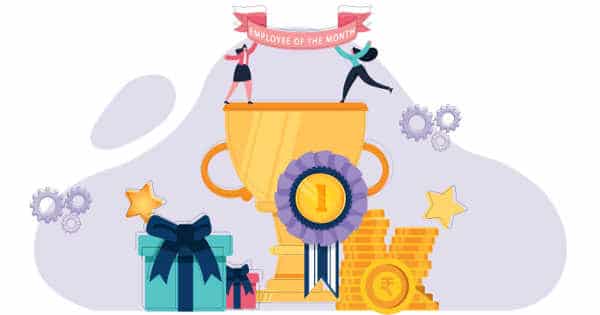According to a new study by management experts at Rice University, Tulane University, the University of North Carolina at Greensboro, and National Taiwan Normal University, managers should consider offering a set of rewards from which employees can choose to boost their creativity.
The study, co-authored by Jing Zhou, the Mary Gibbs Jones Professor of Management and Psychology at Rice’s Jones Graduate School of Business, is the first to systematically investigate the effects of reward choice in a field experiment conducted within the context of an organization-wide suggestion program. A preliminary version of the paper has been published online in the Journal of Applied Psychology.
“Organizations spend a lot of resources and put in a lot of effort to design incentive schemes that reward employees who show creativity at work,” Zhou explained. “Our findings indicated that the effort was perhaps a little misplaced. Instead of identifying a single reward type that is particularly effective at encouraging creativity, it is more effective to give employees the option of selecting from a variety of reward types if they submit one or more ideas that are among the top 20% most creative “”The ones.”
To boost employees’ creativity, managers should consider offering a set of rewards for them to choose from, according to a new study.
Dozens of studies have been conducted to investigate the impact of rewards on creativity. Despite a substantial body of literature, the question of whether rewards foster or stifle creativity remains debatable. Many creativity scholars and laypeople believe that rewards are an effective motivator for a variety of performance types, including creativity. People who are offered a reward may be more creative for a variety of reasons, including the fact that the reward is desirable or represents the person’s status as a creative person. Others, on the other hand, believe that when rewards are offered, creative task performance suffers. Perhaps reward distracts attention from and decreases interest in creative tasks, and lessens perceived control over one’s choices.
Workers in the study were given a choice between a financial reward for the individual employee or their team, a self-discretionary reward such as priority scheduling for select days off, or a donation made by the company to a charity chosen by the employee. Zhou and her co-authors discovered that these choices had a positive, significant effect on the number of creative ideas employees generated as well as the level of creativity of those ideas.
The researchers arrived at their conclusions after conducting a quasi-experiment at a Taiwanese company for several months. The researchers then conducted a second experimental study with employees from 12 Taiwanese organizations to replicate the first study’s findings and compare them to a control group.

The selection of rewards encouraged creativity by increasing employees’ belief in their own ability to be creative. Alternative rewards also had a significant impact on increasing the creativity of employees who had previously scored highly on an assessment of creative personality traits.
The studies also discovered that rewards aimed at helping others, such as donating to a charity, may be especially effective. Alternative rewards that benefit those in need, on the other hand, may reduce creativity in less creative employees and should be avoided, according to the authors.
The researchers also discovered that the choice of rewards encouraged creativity by increasing employees’ confidence in their ability to be creative. Alternative rewards also had a significant impact on increasing the creativity of employees who had previously scored highly on an assessment of creative personality traits.
Furthermore, the researchers discovered that the reward system promoted creativity by increasing employees’ belief in their own ability to be creative. Alternative rewards had a significant impact on increasing the creativity of employees who had previously scored highly on a personality test measuring creativity.
The question of whether reward increases or decreases creativity has sparked heated debate, with substantial data supporting both sides of the argument. In this review, we looked at how the behaviorist view of human nature has led to a tendency to see the reward as increasing creativity, whereas the romanticist view has promoted the opposite view. Our examination of the methodological differences in studies reporting these two types of outcomes, as well as the findings of a meta-analytic review, help to clarify and organize the research literature on rewards and creativity.
















